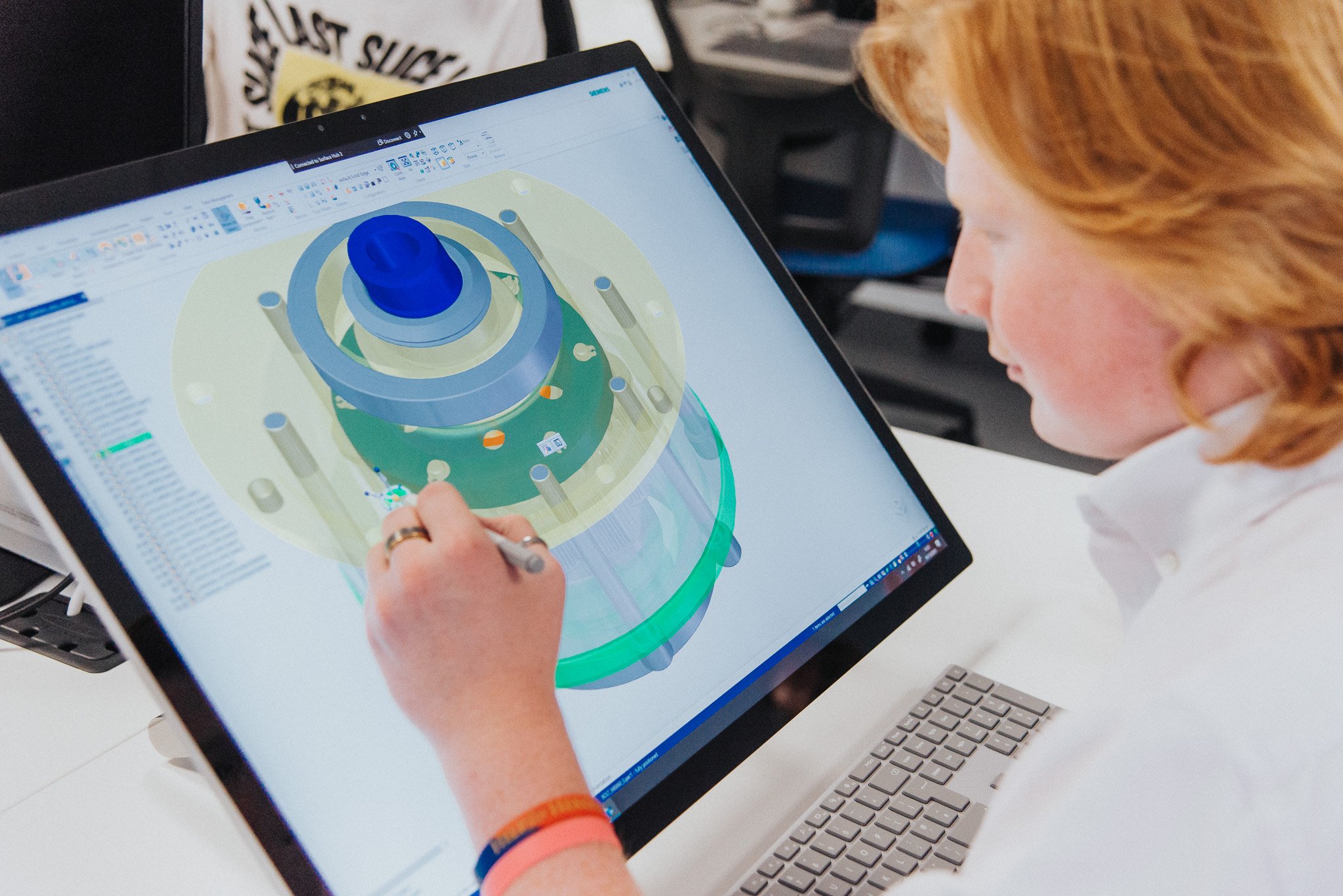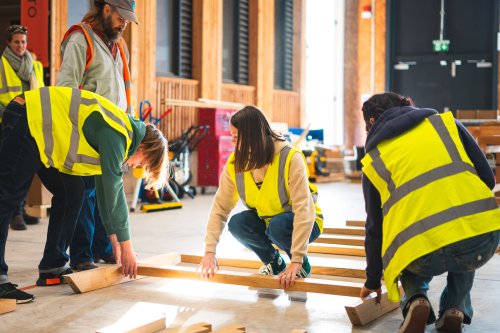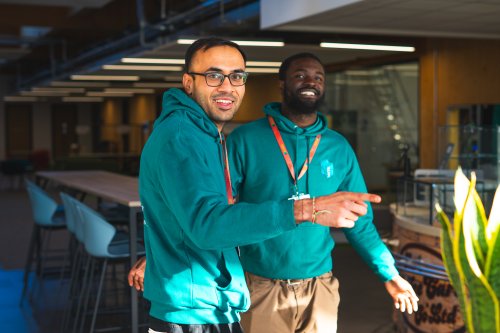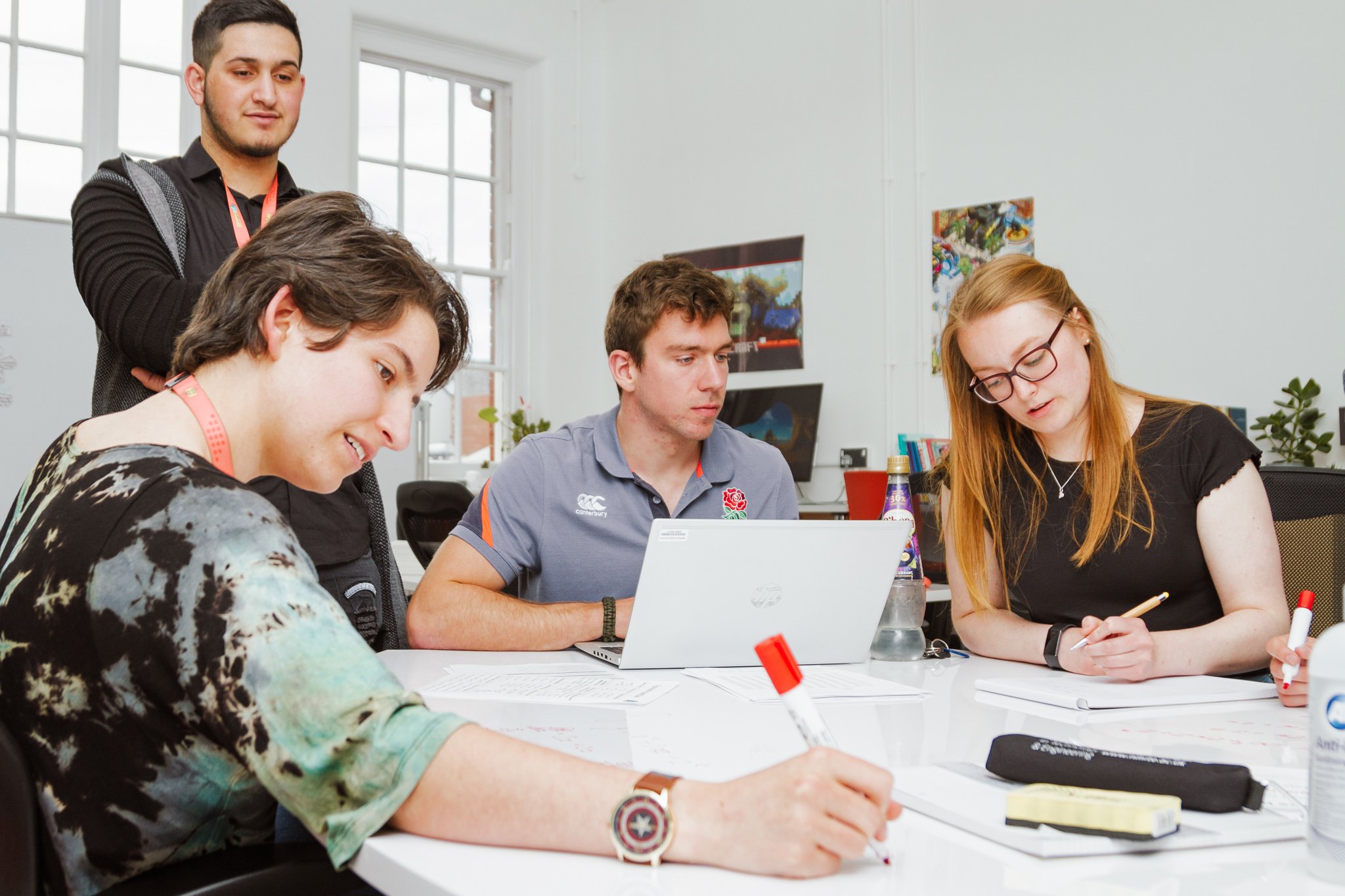
NMITE open days
Book an NMITE open day to experience The NMITE Difference. Meet staff and students, and explore our cutting-edge campuses.

As an NMITE student, you’ll think outside the box. You’ll weave between disciplines. You’ll put the pieces together. You’ll strategise. And you’ll deliver. You’ll be capable of leading the charge for a better future. For a better world.
Tackle real-world problems. Work with real employers. Enjoy real hands-on degrees. We offer a way of learning that, put simply, just makes sense. Our aim? To ensure you graduate career-ready, and fast. Welcome to the real world. Welcome to NMITE.
Designed for the change-makers, the forward-thinkers and the doers. We've flipped traditional education on its head, dropped the lecture theatres, coursework, and traditional exams, and made way for hands-on studio learning that replicates the real world. You’ll spend significant time in contact with academic and industry professionals as you take on business challenges throughout every module.
The need for passionate, curious, resilient, and agile engineers, ready to tackle our biggest world problems, has never been more urgent, because there’s a shortage of engineers entering the workforce. We’re providing a solution to this problem, training engineers to blend science with out-of-the-box thinking to create designs that make life better for all of us.



I’ve found degree-trained engineers to lack hands-on skills. NMITE is doing it differently – they’re embracing the best of both worlds - bringing hands-on project-based engineering to degree-level courses.


I enjoy working in an environment that has strong ties to industry, everything we do feels worthwhile and purposeful.

NMITE is a blend of academic life and working in the field. The course opens your eyes to look at the world from multiple perspectives.
We’re changing the engineering landscape head-on - deliberately breaking down stereotypes of all shapes and sizes to build a more inclusive world. For NMITE. The NMITE community, simply put, is built differently. No matter your background and experiences, if you have the passion and ambition to be an NMITE engineer, then we’ll support you to make it happen.
We’re making our mark on important city projects to help safeguard our collective future. We’ve taken employers from all corners of industry and fused them with the world of academia. Why? To bring you cutting-edge degrees, that will help you make your mark on our ever-changing world. Together, we can build a brighter future.

Employers across the UK are shouting out for career-ready, sustainably conscious engineers who can adapt to this ever-changing landscape. Are you ready to take the leap?
We believe that higher education can and should be better; that engineering must become more open to new and different kinds of thinkers; and that every single individual should be supported to reach their full potential, being 100% career-ready, and exactly what society and industry needs.


Book an NMITE open day to experience The NMITE Difference. Meet staff and students, and explore our cutting-edge campuses.

Explore our standard, foundation and accelerated degree options. Find the perfect match for your interests and career goals.